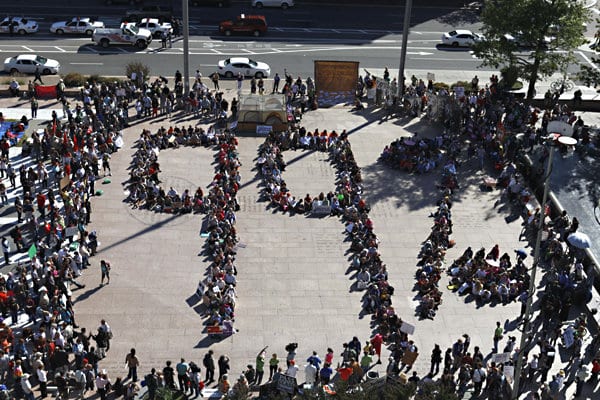
Emmanuel Macron faced protesters across France during the weekend, in a country where he has been dubbed The President of the Rich. What interests me is that title. The President of the Rich. Are not all governments, the governments of the rich? Isn’t that why we have the 99% for, as the rich get richer, the poor get poorer? The bottom-line is that it is all about power, and the rich have access to power.
Emmanuel Marcon himself is a former investment banker and, like many other world leaders, has a privileged background. In fact, it does seem that many government offices are filled by people who went to expensive schools and then had careers in banking, law and other high office. They have little in common with the common people, but know how to work the systems of power. That’s how they get into power.
This is a trait that seems pretty consistent worldwide, and so has to be a common ground for all humanity. Those who have power get more power, whilst those who do not get less. The rich get richer whilst the poor get poorer.
It is the reason why most politicians have little in common with the common people. It is the reason why many thought Brexit would not happen, as everyone wants to be European. It is the reason why everyone thought Trump would lose, as everyone wants a first female President. It is also the reason why banking is connected, hand-in-hand, with government.
Those libertarians who believe they can create a system without government are deluded, as the whole point of government is to centralise power. If you try to decentralise power, you lose control. The system does not work. There has to be a central force that controls everything to create stability and structure. There has to be a central force to create rules and regulations that maintains that control.
It is a flaw of humanity that the powerful get more powerful whilst the rest of us get screwed, but it is a part of our DNA. We need control. We need stability. We need structure.
It always surprised me when I was a manager that we talked so much about empowerment. Give staff power. Let them make decisions. Create a flattened organisation. The best managers are those that let people manage themselves.
It all sounds so nice and neat as an idea but, in practice, it failed. Many people do not want to be empowered. Many people do not want to make decisions. Many people do not want to manage themselves.
As I write this, I worry that people will read it and give me a backlash of hate. The 1% are corrupt and wrong; the people need to have power; we can make decisions for ourselves. And yet, as I travel the world and reflect on civilisations, this is not the case. It is why films like The Hunger Games and In Time, paint worlds of the future where the powerful have a Utopian world of narcissism whilst the masses have a Dystopian world of war.
These futuristic portraits began a century ago with the film Metropolis and even longer ago with the battles between feudal lords and their counterparts’ masses.
So yes, Emmanuel Macron is the President of the Rich, but so are most world leaders. In fact, most world leaders are actively engaged in corruption and bribery, and dealing in cloudy affairs of international intrigue. I blogged about this in the Spring, and told the story about the renowned photographer Platon. At one United Nations Summit, he managed to be given the privilege of photographing every world leader attending from Gadhafi to Berlusconi. On presenting these images, he noted that nearly every single one was now on trial for corruption.
So yes, it is a fact of life that power centralises power and power is based upon the economy and power is focused upon the rich. It is a fact of life.
Will it ever change? Who knows, but the future worlds of Star Trek and Star Wars are very different. The former is a democratised world where everyone is equal; the latter is a dystopian world where everyone is at war. Which future world do you want? And if you say the former, you are a socialist and if you say the latter, you are a capitalist. Job done.
Chris M Skinner
Chris Skinner is best known as an independent commentator on the financial markets through his blog, TheFinanser.com, as author of the bestselling book Digital Bank, and Chair of the European networking forum the Financial Services Club. He has been voted one of the most influential people in banking by The Financial Brand (as well as one of the best blogs), a FinTech Titan (Next Bank), one of the Fintech Leaders you need to follow (City AM, Deluxe and Jax Finance), as well as one of the Top 40 most influential people in financial technology by the Wall Street Journal's Financial News. To learn more click here...

